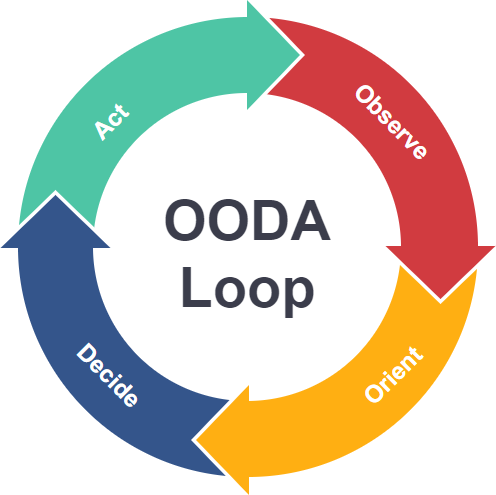Many decision frameworks promise better decisions, from military strategies like the OODA loop to business cycles like Deming’s PDCA, and even formal decision science. These tools have their place, especially for life-altering choices.
But three components truly shape our outcomes:
Random chance (luck), which we can't control
Our starting position
The choices we make.
We can only influence our position and our choices. This is where the real leverage lies. For most decisions, the quality of our outcomes hinges more on what happens before we choose than on the specific decision-making method. Overlook this "run-up," and even the best decision science can miss the mark. Getting your pre-decision "funnel" right is what’s MUCH more important.
Funneling Success: The Power of Positioning
Good positioning means your available choices are mostly good ones. As the saying goes, "No one looks bad if the only choices they had were good ones." Setting yourself up well—by building skills, health, resources, strong relationships, and a solid reputation—naturally improves your options and filters out many bad outcomes before a "decision" is even formally needed. This isn't about predicting the future; it's about shaping your present to create more favorable paths and becoming antifragile, where challenges can even make you stronger.
Focusing Your Fire: Triage as Your Everyday Superpower
"The essence of strategy is choosing what not to do." - Michael Porter
Life brings a constant stream of choices, but not all deserve equal mental energy. Effective triage helps you quickly sort where to focus your attention. I see three main buckets:
Trivial: Minimal consequences. Decide quickly; don't overthink.
Big: High-stakes, long-term impact. These get your full attention and best analytical tools.
Everything Else: The vast middle ground. These can feel tricky due to unknowns or similar options.
For this "Everything Else" category, after reasonable thought, commit to your choice and act "as if" it's the best one. Act with conviction and avoid second-guessing. Remember, around 90% of our choices likely only need 10% of our maximum decision-making effort.
Building Your Guardrails: The Impact of Heuristics and Habits
To efficiently navigate that "Everything Else" bucket, rely on well-chosen heuristics (personal rules of thumb) and strong habits. My favorite heuristic is “Don’t Do Stupid”, meaning never play Russian Roulette with yourself. Even a tiny chance of being taken out of the game isn’t worth the risk. Your heuristics are shortcuts shaped by your values and experiences—your internal guardrails.
"We are what we repeatedly do. Excellence, then, is not an act, but a habit." - Will Durant
Habits put these heuristics into daily action, and they compound, either becoming powerful allies that improve your position or hindrances that drag you down. The simple act of triaging whether a decision needs deep thought or just a quick personal rule is a valuable habit itself.
For choices with trivial consequences, use them to explore. Try new things, like never ordering the same entrée twice. This builds adaptability.
For choices with cumulative effects, pick a healthy, sustainable course, such as limiting desserts to weekends. This builds discipline and directly boosts your well-being—a core part of your positioning.
Knowing When to Go Deep (and When Not To)
I’m not suggesting you flip a coin for major life decisions. When stakes are high, use the full power of decision science and focused attention. The benefit of strong positioning, triage, and heuristics is that they free you up for these moments. If 80-90% of your other decisions run smoothly on a sensible autopilot, you'll have the mental clarity and resources to tackle the big ones properly. The "run-up" doesn't avoid deep thought; it reserves it for where it counts most.
Autopilot for a Better Trajectory
So, for big decisions, use your best tools. For trivial ones, explore or even be random. For everything else, develop reliable personal rules. Get your heuristics and habits working for you; put those choices on a smart autopilot. This isn't laziness; it's strategy.
Everyday choices, guided by sound principles, are powerful mechanisms for continually improving your starting position. A strong position—being healthy, financially stable, well-connected, resilient—isn't from one grand decision, but the sum of countless smaller ones. That improved position is what truly changes your life and career trajectory, making even future "big" decisions easier to face.
That’s My Perspective.






